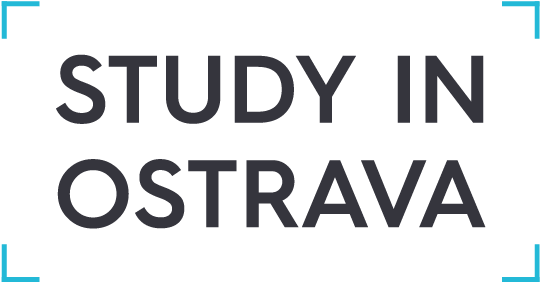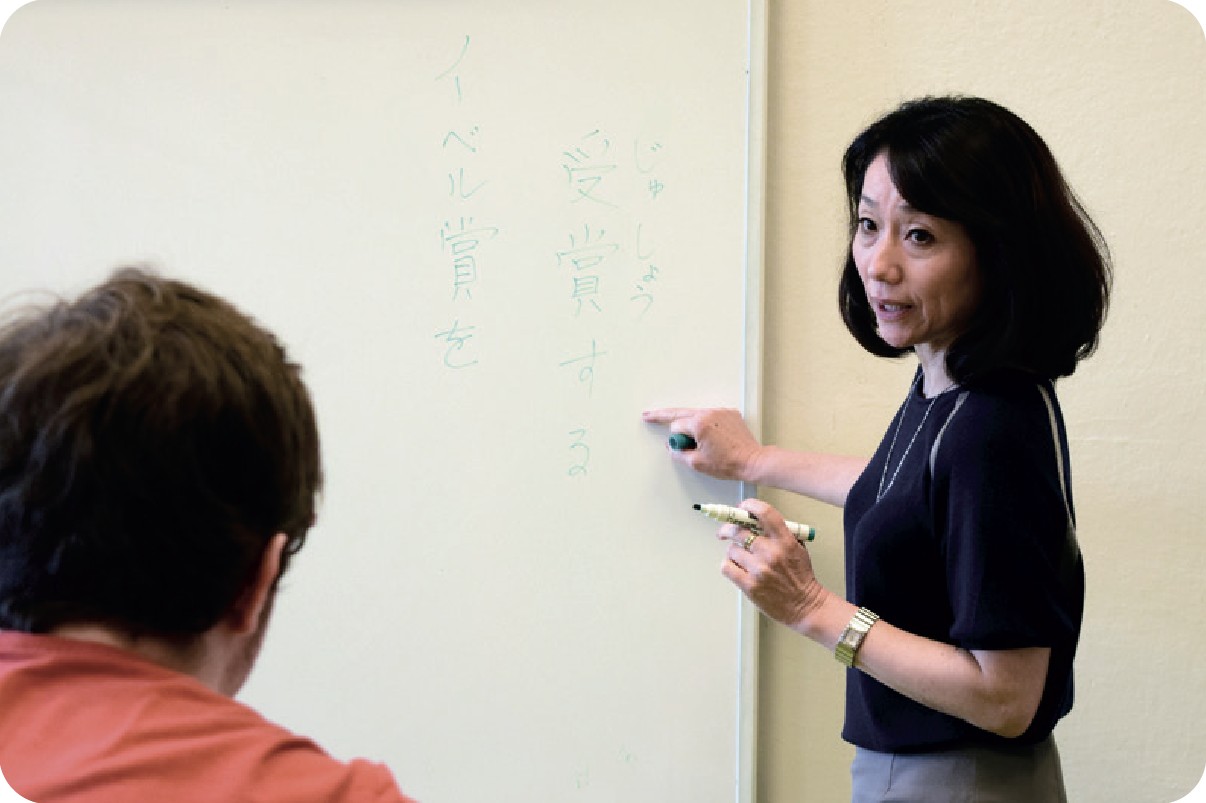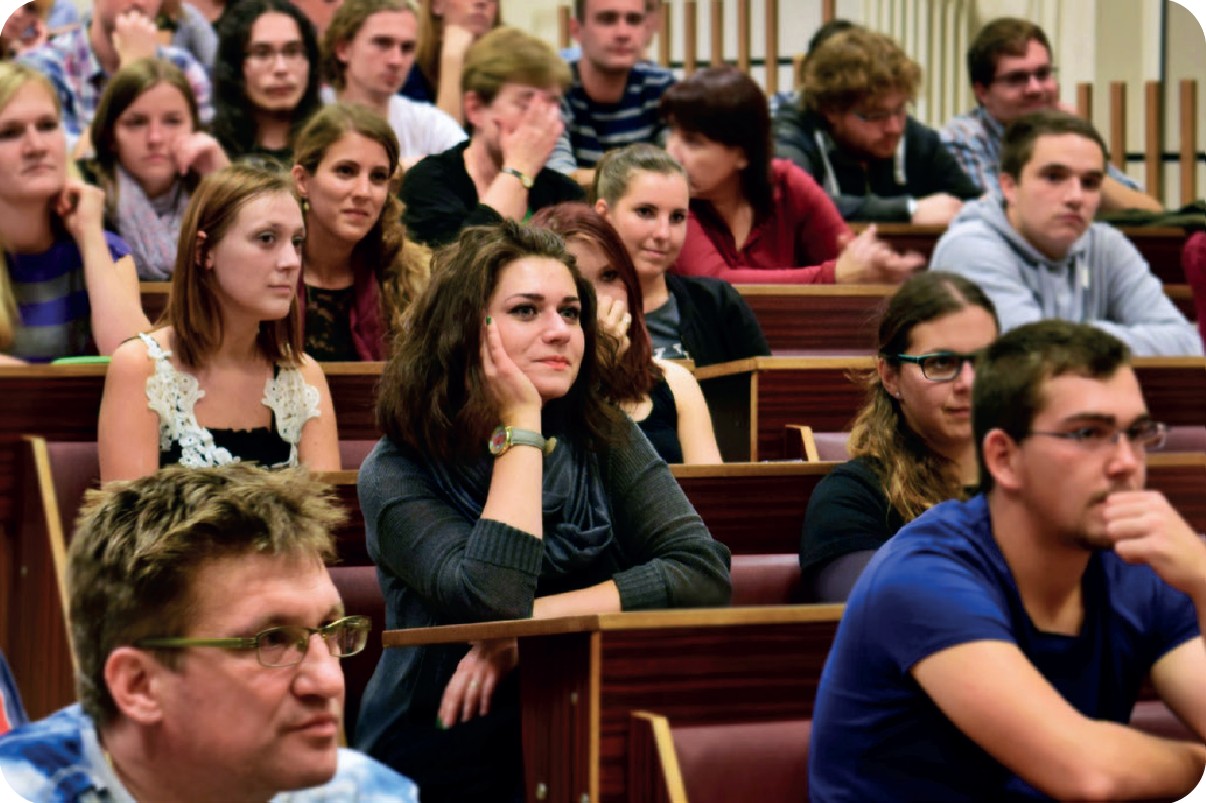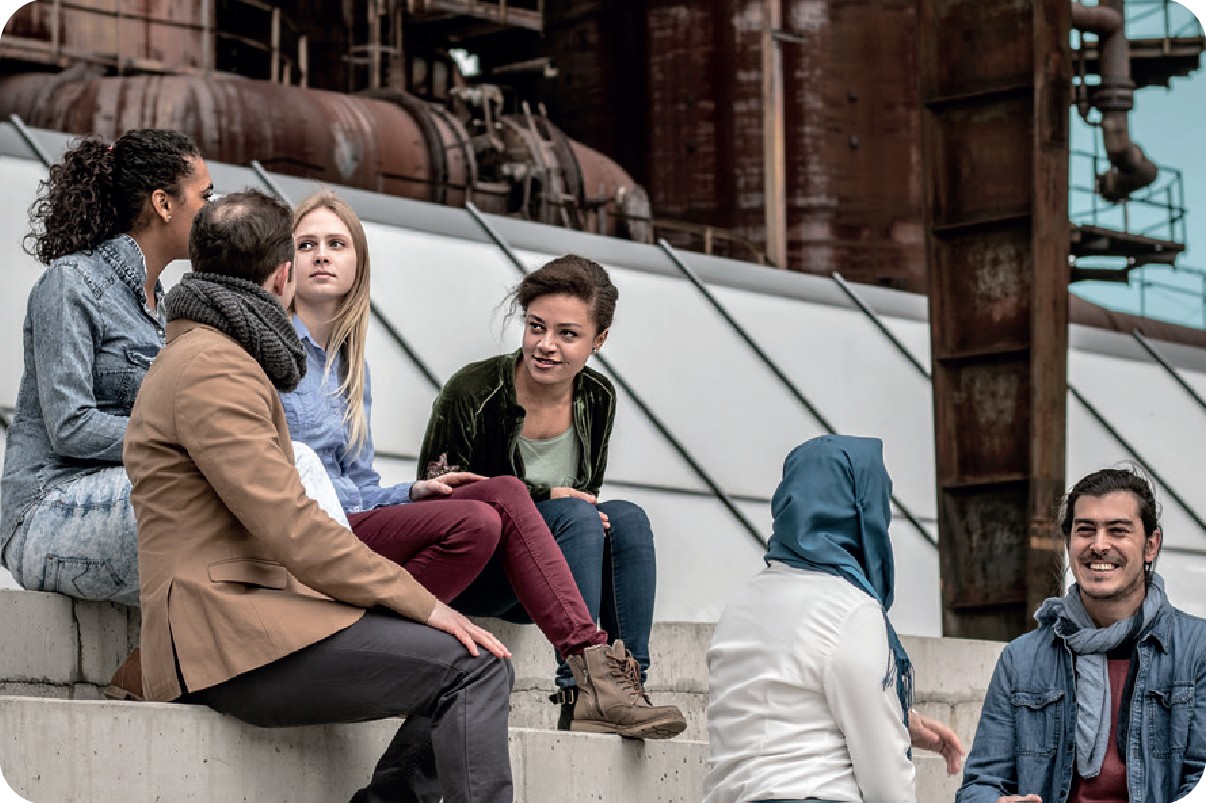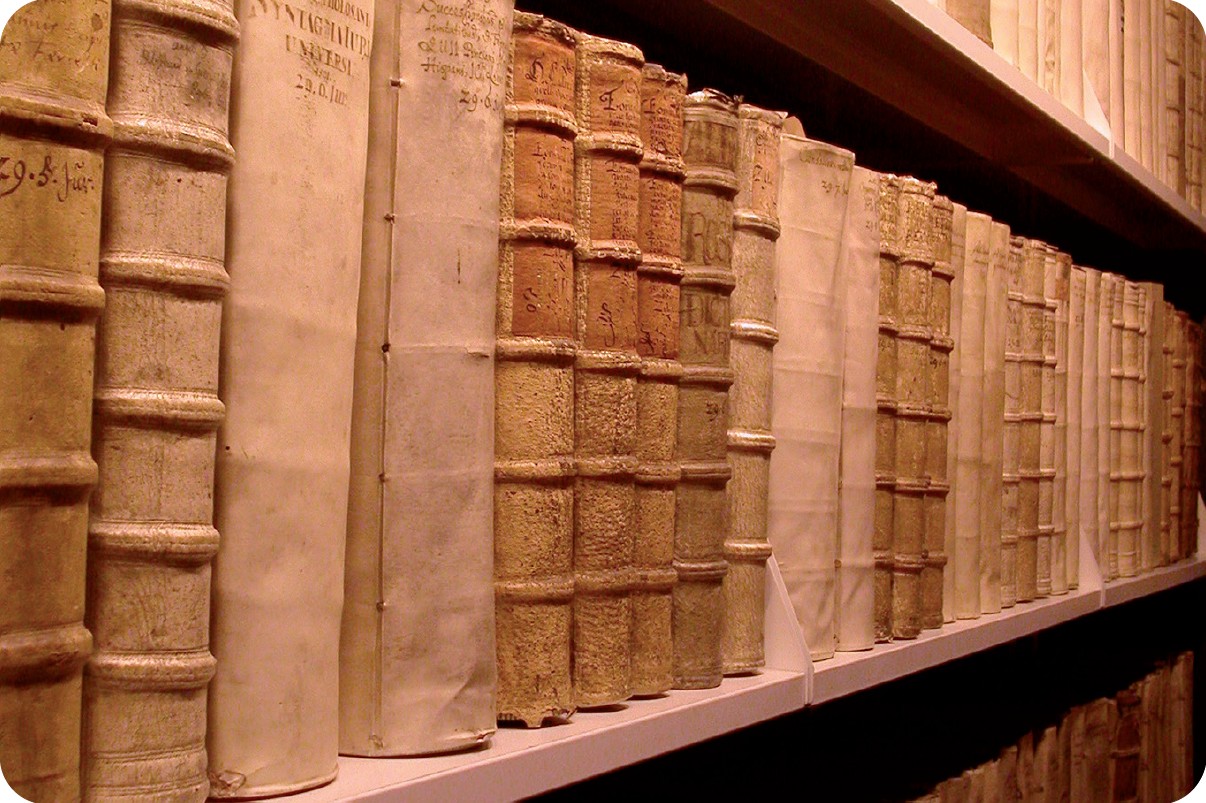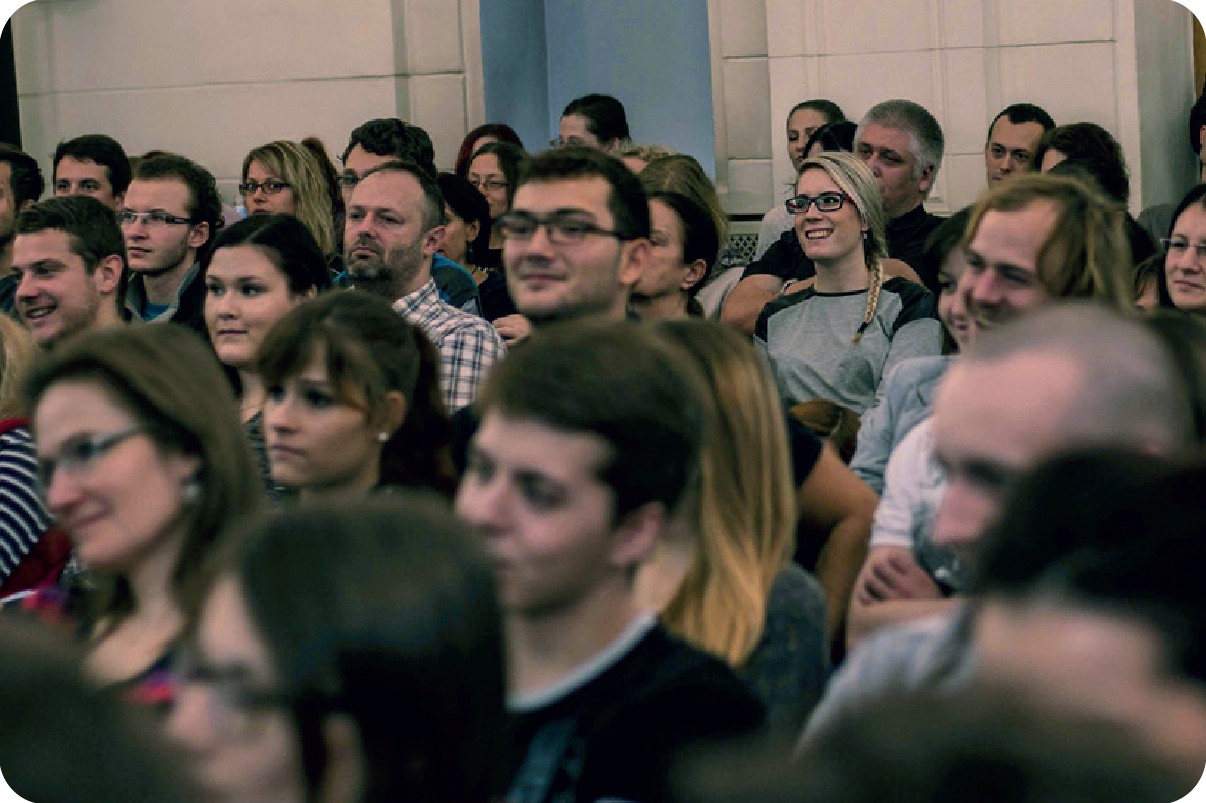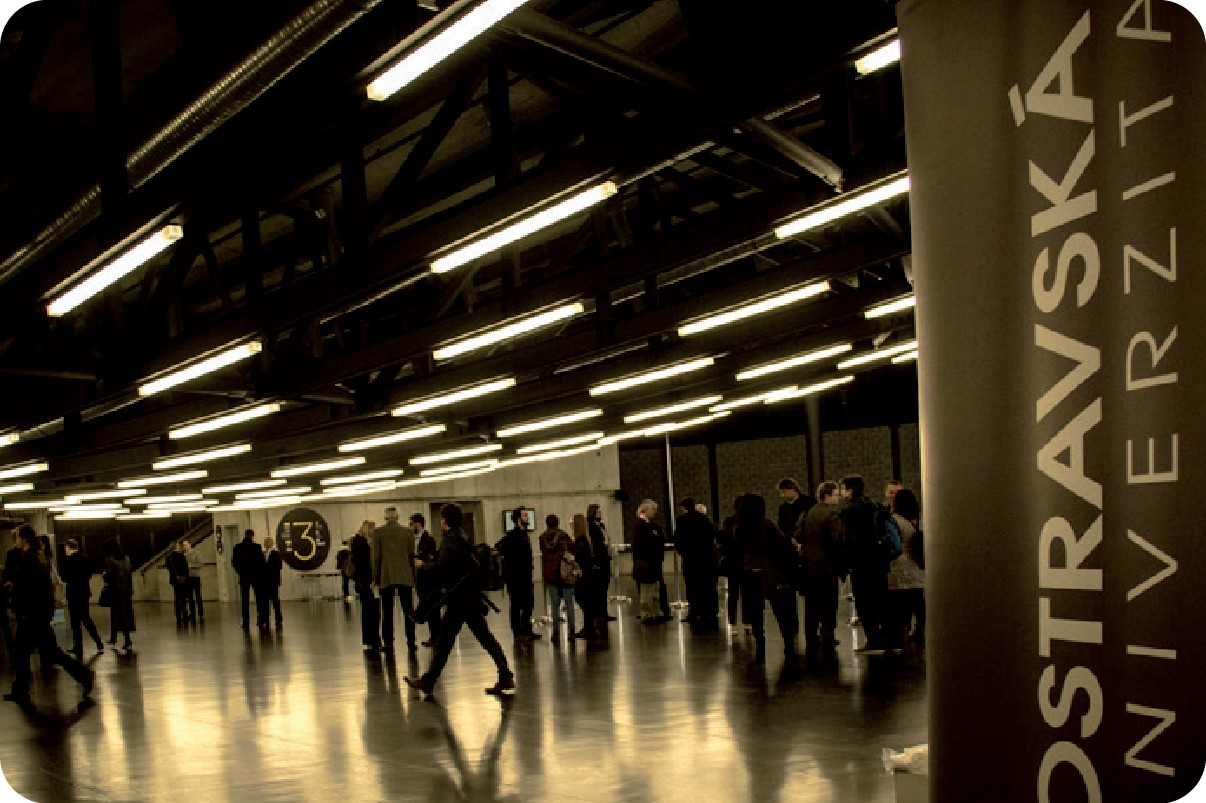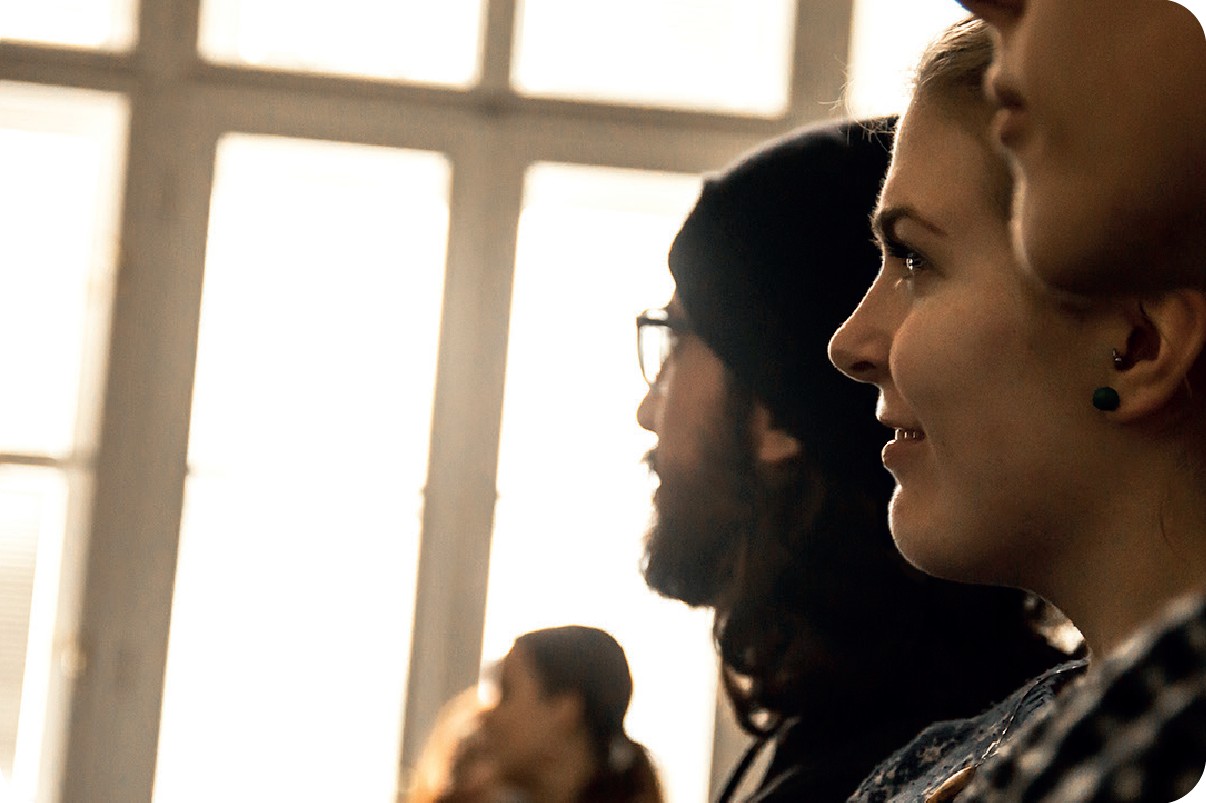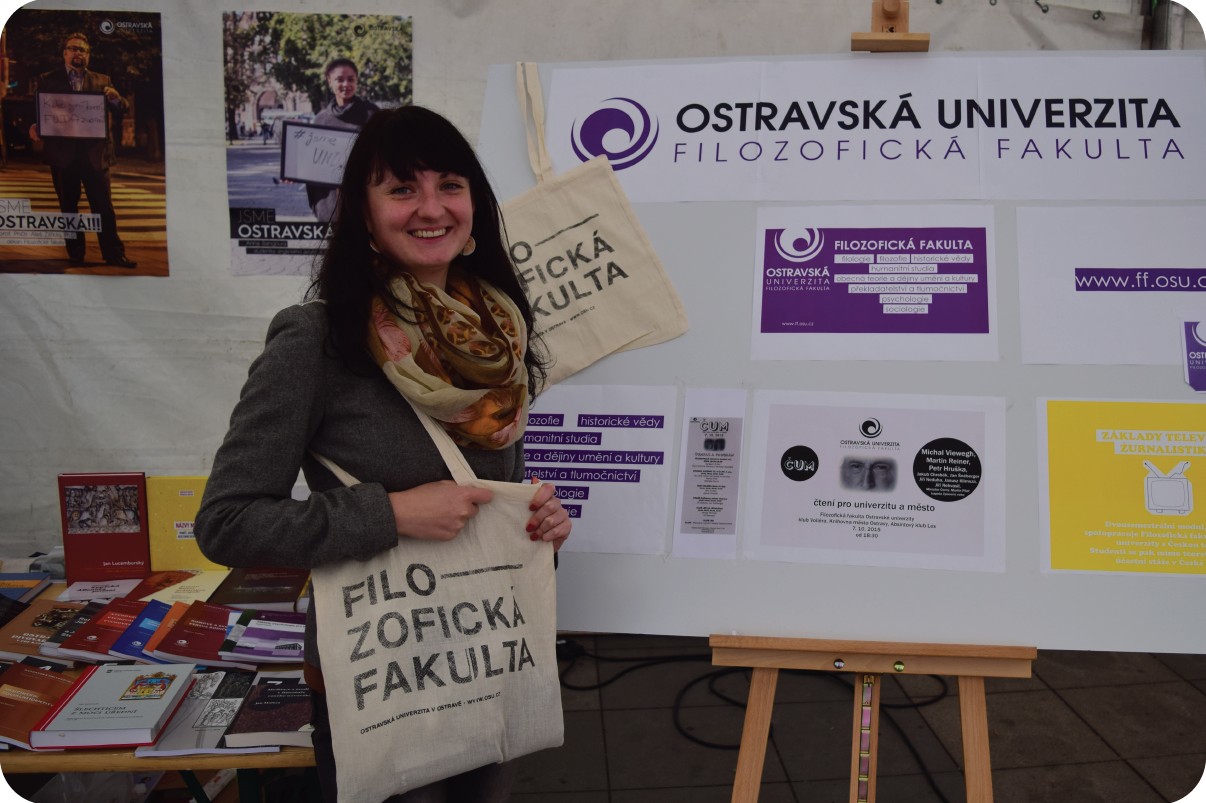

Welcome to the Faculty of Arts
Founded in 1991, the Faculty of Arts is one of the largest faculties at the University of Ostrava. Currently the Faculty has over 2000 students and more than 120 academic staff. Half of its twelve departments focus on philological disciplines (modern and classical languages and linguistics), while the remaining departments specialize in a range of social sciences and humanities – psychology, sociology, philosophy, art history and cultural heritage, Czech literature and literary theory.
Research forms an integral part of academic life at the Faculty, which has several specialist research centres. Academic staff and students participate in a wide range of Czech and international research projects, and the Faculty also has a strong tradition of publishing – both monographs and its own specialist periodicals (all these publications are available direct from the University’s bookstore). The Faculty is regularly rated as one of the top three faculties of its type in the Czech Republic in surveys held by the Association of Students and Graduates.
The Faculty of Arts is based in a complex of buildings located in Ostrava’s historic city centre. It includes a study room, a student club and a student bar situated in the central courtyard area.
The Faculty’s location in the heart of the city enables it to play an active role in the community, contributing to Ostrava’s vibrant cultural life. The Faculty cultivates close links with many of the city’s cultural and educational organizations, non-profit institutions, and other partners from both the private and public sectors. As part of its strong roots in the local community, the Faculty offers a range of lifelong learning courses and programmes helping people to update and expand their skills and qualifications, offering a valuable competitive advantage on the job market.
Teaching and learning
The Faculty of Arts offers degrees in an extensive range of subjects – philology (modern and classical languages and linguistics), philosophy, historical sciences, psychology and sociology – covering all three levels of higher education (Bachelor’s, Master’s and doctoral degrees). Applicants can choose from around 80 different degree subjects or subject combinations.
Teaching is provided by staff from the Faculty’s twelve departments: the Department of Art History and Cultural Heritage; the Department of Czech Language; the Department of Czech Literature and Literary Criticism; the Department of English and American Studies; the Department of German Studies; the Department of History; the Department of Latin Language and Culture; the Department of Philosophy; the Department of Psychology; the Department of Romance Studies; the Department of Slavonic Studies; and the Department of Sociology.
Around 100 international students arrive at the Faculty of Arts each year as part of various exchange programmes, primarily the European Union’s Erasmus+ scheme. The most popular subjects chosen by visiting international students are modern languages and literatures (Czech, English, French, German, Polish, Russian, Spanish), though other subjects are also available to international students. The Faculty offers several options for studying Czech as a foreign language – either as single-semester intensive courses or as a full Master’s degree. There is also a single-semester paid module called ‘Central European Studies’, which is taught in English and provides a broad-based overview of Central European history and culture.
Research
Research at the Faculty covers a broad range of different fields in the humanities and social sciences, enabling scholars to engage in fruitful interdisciplinary collaboration with their colleagues.
In addition to its twelve departments (which are involved in both teaching and research), the Faculty also has four dedicated research centres, all with a strongly interdisciplinary focus:
The Centre for Economic and Social History specializes in the historical process of modernization – an area which still remains under-researched in Czech historiography, yet which is of key importance for understanding the complexities of our contemporary society.
The Centre for Research in Medieval Society and Culture (VIVARIUM) explores the sociocultural horizons of medieval Europeans from all strata of society, contributing to a deeper knowledge of European medieval culture as a whole.
The Centre for Regional Studies focuses on regionalism and the role of regions in literature and culture – exploring the historical, social and cultural aspects of regions, the delineation of individual cultural regions, and the characteristics shared by specific cultural segments across various European regions.
The Centre for the Research of Professional Language is a linguistic research centre exploring professional language in English, German and Czech, with an emphasis on the changing characteristics of professional and expert discourse in the era of globalization.
In addition to Faculty staff members, its students (both at Master’s and doctoral levels) also make an important contribution to research at the Faculty as part of research-based projects such as the University’s Student Grant Competition.
The Faculty regularly hosts international conferences, welcoming scholars to Ostrava from all over the world. Recent events have included the conferences Issues of Perception between Medieval and Early Modern Philosophy, The Changing Landscape of Professional Discourse, and Mongolian Expansion and Its Influence on Development in the Eurasian Area in the 13th and 14th Centuries. The latter conference was organized by the Euro-Asian Academic Forum (EAAF), set up by the Faculty to support student and academic mobility between the Czech Republic and non-EU countries.
Why study at the Faculty of Arts
- We promote a culture of open discussion between students and academic staff, encouraging students to think critically, view issues in their wider context, and formulate their ideas with clarity.
- The Faculty’s departments organize annual student conferences where students have the opportunity to present their research results, practice their rhetorical skills, engage in constructive critical discussions, and support each other’s efforts.
- The Faculty has a strong tradition of research involving students, who also have the opportunity to publish their research results.
- The Faculty has four specialist research centres and offers 14 different doctoral degrees.
- Every year the Faculty hosts numerous scholars and other renowned public figures from the Czech Republic and all over the world.
- The Faculty is located in the very heart of Ostrava, enabling students to participate fully in the city’s vibrant community and enrich its cultural life.
- Students can take part in a wide range of activities organized by students – many of them held at the Faculty’s student club and bar.

